Who and what is eligible for BAR?
What qualifies?
Because of Brexit, many organizations had to make adjustments to stay competitive and navigate the new (market) situation after the withdrawal of the UK from the EU.
With this call, VLAIO supports projects with a clear direct link to the negative impact of Brexit, subject to compliance with state aid rules.
Some examples:
- developing a new logistics solution
- adapting the supply chain
- improving border and customs facilities & processes
- investments related to border and security controls
- programs related to certification, labeling, marking
- costs associated with training employees or hiring additional staff to manage the new customs formalities
What does not qualify?
- relocation activities
- Tax costs, like VAT
Who is eligible?
The BAR reserve is aimed at private companies, organizations and public bodies that experience a negative economic impact as a result of the United Kingdom's withdrawal from the European Union (Brexit).
To qualify for the BAR grant, companies and organizations must be able to demonstrate that they had a (trade) relationship with the UK prior to Brexit. The European Commission uses 01/31/2020 as the reference date on which the UK left the European Union. Organizations profiting from Brexit, the financial sector and relocation activities are not eligible for this grant.
Basically, organizations from any sector that can demonstrate a negative impact and meet the conditions below are eligible.
‘Organization’ is used as an umbrella term for any type of business, public body, NGO, sector organization, etc.
To be eligible for a grant, an organization must be a legal entity (Section 1 of the Decree of the Flemish Government granting subsidy). These legal entities are:
- Company: a natural person who independently exercises a professional activity as a main or secondary occupation, a company based on a legal entity under private law, a foreign company with similar status and an association based on a legal entity and an economic activity that has an active operating seat in the Flemish Region according to the “Kruispuntbank van Ondernemingen” (Crossroads Bank for Enterprises).
- Public entity: a public administration, institution or organization with a clearly defined mission of public service within the Flemish Region or the Flemish Community, respectively, that, for the purposes of this decision, acts on the basis of that mission.
Some examples (non exhaustive):
- An exporter of dairy products that is required to arrange for additional certificates for its products after Brexit to continue doing business in the UK
- A company that had to hire extra people after Brexit to handle the new customs formalities
- A flower exporter that experienced a drop in sales after Brexit due to longer transit time
- A company incurring additional costs to obtain work permits for British employees stationed in Flanders if this was already set out in a service contract signed before Brexit
- An organization offering travel to and from the UK that has lost customers due to the new travel requirements after Brexit
- A textile trader that must adjust business operations because of rules of origin
- A cultural organization with projects (e.g., business visits, network events, participation in events and festivals) in the UK that undergo obstacles because of Brexit
Who is not eligible?
- Organizations profiting from Brexit. For example: companies increasing their market share in the UK thanks to Brexit
- Organizations from the financial sector
- Organizations with the following legal status:
- dissolution
- discontinuation
- bankruptcy
- settlement
- Holding, management, or asset management companies
- Companies whose manager is affiliated with another company as a director or partner that received the grant and to which they provide business services
- Companies in difficulty
- Credit and financial institutions supervised by the National Bank of Belgium
- Companies that at the time of the grant application are in insolvency proceedings as set out in Section I.22, 1°, of the Code of Economic Law, or have been summoned by the NSSO as mentioned in the VKBO
- Businesses that do not have a cash register system in accordance with Section 21bis of Royal Decree No. 1 of December 29, 1992, regarding the provision for payment of value-added tax and Section 2bis of the Royal Decree of December 30, 2009, determining the definition and conditions that a registered cash register system in the hospitality sector must meet


